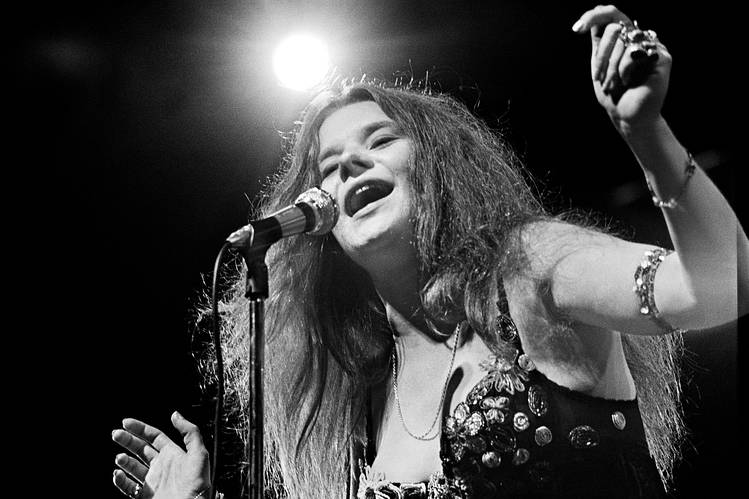What’s in your bag and what’s on your reading list can say a lot about a person. For Janis Joplin, the answers to those questions matched her free-spirited personality and artistry – makeup, matches, a vintage cigarette holder, an autobiography about an icon from the jazz age and an introspective novel by Thomas Wolfe.
Finding her way into the music industry in the late 1960s at the Monterey Pop Festival, Joplin became an essential figure in the counterculture of the era, going on to play Woodstock not long after. She became a psych-rockstar, but she also fell into the lifestyle of excess that often seemed to come with that title, struggling with drug addiction until her death in 1970.
Joplin may have left us young, at just 27 years old, but that didn’t stop her from having a mammoth impact on music. Over half a century after her death, she remains one of the most well-known and well-loved rock artists of all time. But as well as being a rocker, Joplin was also a reader.
As Hairpin uncovered, via The Los Angeles Times, a bio about the ‘Piece of My Heart’ singer once revealed what she kept in her purse in 1970. Amidst hotel keys and matches were two books – Nancy Milford’s Zelda and Thomas Wolfe’s Look Homeward, Angel.
The former revealed Joplin’s interest in the era of excess that came before the psychedelic movement of the 1960s. Zelda was a biography Milford penned about the multi-talented artist Zelda Fitzgerald. An iconic figure of the flapper era, Fitzgerald and her husband, The Great Gatsby writer F. Scott Fitzgerald, typified the age they inhabited.
Just like the characters in Fitzgerald’s writings, the pair were wild partiers, relishing in the flapper fun of the 1920s, but her life wasn’t all drinking and dancing. She struggled with her mental health for years of her life, with years of inhumane treatment infringing on her writing and livelihood until her death in 1948.
A real-life tale of the dangers of excess from decades before, it’s interesting that Joplin opted to read the story of Zelda Fitzgerald. The other book in her purse was Wolfe’s Look Homeward, Angel, a work that sits somewhere between a novel and an autobiography, finding Wolfe writing about himself through the lens of his protagonist.
It follows the main character, Eugene, through alcoholism, reading, and resolution. With similar themes of freedom and substance abuse, it’s understandable why Joplin might have felt drawn to the book. A talented artist seeking freedom, Joplin’s artistry unfortunately became complicated by alcohol and heroin. Her legacy still lives on through those who admire her, who might be able to feel a little closer to her through her reading picks.










